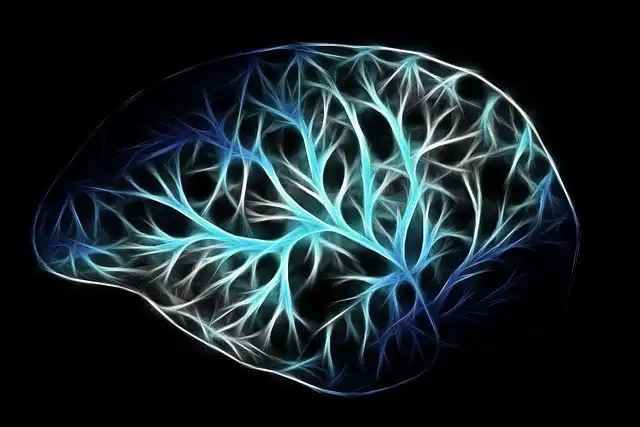Evolution: Genes, Cognition, and Mental Health Timeline

Genetic research reveals a timeline of human evolution linking cognitive abilities, brain structure, and mental health vulnerabilities. Intelligence-linked genes appeared ~500,000 years ago, followed by psychiatric disorders.
The team explored the transformative beginnings of 33,000 genetic versions found in modern people that have been linked to a wide range of characteristics, consisting of mind framework and various steps of cognition and psychological problems, in addition to health-related and physical functions like eye form and cancer. The majority of these genetic anomalies just reveal weak organizations with a trait, claims Libedinsky. “The links can be beneficial beginning points, however they’re much from deterministic.”
Genetic Anomalies and Trait Links
Even so, this sort of research can only analyze hereditary sites that still differ among living human beings– meaning it misses out on older, now-universal adjustments that might have been crucial to our development, Fisher includes. Establishing tools to penetrate “dealt with” areas can provide much deeper insight into what really makes us human, he says.
Why development hasn’t weeded out the versions that incline for psychological problems isn’t clear, but it might be due to the fact that the impacts are moderate and might provide advantages in some contexts, claims Libedinsky.
Recently, however, genome-wide association researches have actually examined lots of people’s DNA to identify which anomalies are associated with characteristics like knowledge, brain dimension, elevation and numerous type of ailments. At the same time, various other teams have been evaluating details facets of mutations that mean their age, supplying quotes of when those variants initially showed up.
Genome-Wide Association Studies
The group explored the transformative origins of 33,000 genetic variations found in contemporary humans that have been linked to a wide range of characteristics, including mind framework and various actions of cognition and psychiatric conditions, as well as physical and health-related features like eye shape and cancer cells. Versions linked to a lot more advanced cognitive abilities developed relatively recently compared with those for other characteristics, claims Libedinsky. Those relevant to fluid knowledge– essentially rational analytical in new situations– appeared about 500,000 years ago on standard. That’s concerning 90,000 years later on than versions connected with cancer, and nearly 300,000 years after those relevant to metabolic features and disorders. Those intelligence-linked variations were carefully followed by versions linked to psychological problems, around 475,000 years ago on standard.
“Mutations related to the really standard framework of the nerves come a little prior to the mutations for cognition or knowledge, that makes sense, given that you need to develop your mind initially for greater knowledge to emerge,” claims Libedinsky. “And after that the anomaly for intelligence comes before psychiatric conditions, which additionally makes sense. You require to be smart and have language prior to you can have dysfunctions on these capacities.”
“This kind of job is interesting due to the fact that it allows researchers to take another look at longstanding questions in human evolution, screening hypotheses in a concrete way utilizing real-world information obtained from our genomes,” claims Simon Fisher at the Max Planck Institute for Psycholinguistics in Nijmegen, the Netherlands.
“We do not have any kind of trace of the cognition of our ancestors when it come to their behavior and their psychological problems– you can’t find those in the palaeontological records,” he states. “We intended to see if we might build some kind of ‘time maker’ with our genome to figure this out.”
“Mutations connected to psychiatric disorders obviously entail component of the genome that additionally involves intelligence.
Timeline of Cognitive Abilities
That trend repeated itself starting around 300,000 years earlier, when many of the variations affecting the form of the cortex– the brain’s external layer in charge of higher-order cognition– appeared. In the previous 50,000 years, numerous variants linked to language advanced, and these were carefully followed by variations linked to alcoholism and clinical depression.
A timeline of hereditary changes in millions of years of human evolution shows that variations connected to higher intelligence appeared most rapidly around 500,000 years back, and were carefully followed by anomalies that made us even more vulnerable to mental disorder.
Versions linked to more advanced cognitive capacities developed fairly lately compared to those for various other characteristics, states Libedinsky. For example, those pertaining to fluid intelligence– essentially sensible problem-solving in new scenarios– showed up regarding 500,000 years ago generally. That has to do with 90,000 years later than variations related to cancer cells, and virtually 300,000 years after those pertaining to metabolic features and problems. Those intelligence-linked variations were very closely adhered to by versions linked to psychological problems, around 475,000 years earlier generally.
Intelligence vs. Psychiatric Concerns
The searchings for recommend a “trade-off” in brain evolution in between intelligence and psychiatric concerns, states Ilan Libedinsky at the Facility for Neurogenomics and Cognitive Research Study in Amsterdam, the Netherlands.
Human beings split from our closest living loved ones– bonobos and chimpanzees– greater than 5 million years earlier, and our brains have actually tripled in size ever since, with the fastest development over the previous 2 million years.
1 brain development2 genetic variations
3 human evolution
4 intelligence genes
5 mental health
6 social cognition
« Hydraulic Jump: Electrons Mimic Water Flow in GrapheneGRB 250702B: Ultra-Long Gamma-Ray Burst Explained »
